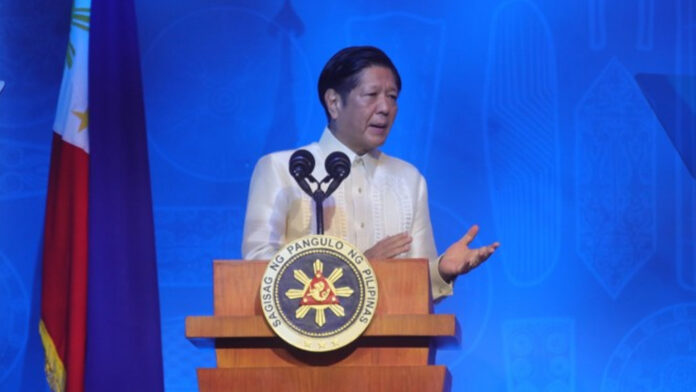President Ferdinand R. Marcos on Tuesday called on Asia and the Pacific, the world’s most disaster-prone region, to craft an international legal framework to guide disaster prevention and response and ensure the protection of individuals during and after disasters.
Speaking at the opening ceremony of the Asia-Pacific Ministerial Conference in Disaster Risk Reduction (APMCDRR), Marcos said the Philippines is ready to lead the development of an international legal instrument for the Protection of Persons in the Event of Disasters.
“This endeavor aims to fill critical gaps in international disaster response laws, uphold the rights and dignity of affected persons, establish clearer obligations, and enhance humanitarian coordination,” Marcos said.
The Philippines is hosting the APMCDRR for the first time from Oct. 14-18 at the Philippine International Convention Center in Pasay City, gathering governments, civil society organizations, the private sector, science, academe, and stakeholder groups to strengthen cooperation on disaster resilience and risk reduction in Asia and the Pacific region.
Around 4,000 delegates gather from 70 countries in Manila to put urgency on strengthening regional efforts to ensure a safer future for all.
‘Climate champion’
Marcos touted the Philippines as a “climate champion” as he expressed readiness to host the Loss and Damage Fund Board, the global finance mechanism to assist vulnerable states dealing with the effects of climate change.
“This reinforces our commitment to improving the Board’s operations and to contribute to the success of its institutional architecture,” Marcos said.
“We are hopeful for a Fund that will benefit climate-vulnerable countries, many of whom are in our region.”
The President also noted the Philippines’ vast experience in dealing with disasters due to its location and vulnerability to climate change — something that other Asia Pacific countries also deal with, he said.
“We must strive to create a future where the need for recovery becomes less frequent, as we lay the foundations for a safer, more adaptive, inclusive, and disaster-resilient region,” Marcos said.
He enumerated steps on how the Asia Pacific can lead a global effort to reduce disaster and climate risks, protect individuals, and build sustainable economies, which include enhancing disaster investment, embracing inclusion, innovation, coordination and collaboration, and fostering open dialogue among key stakeholders and partners. (PNA)




